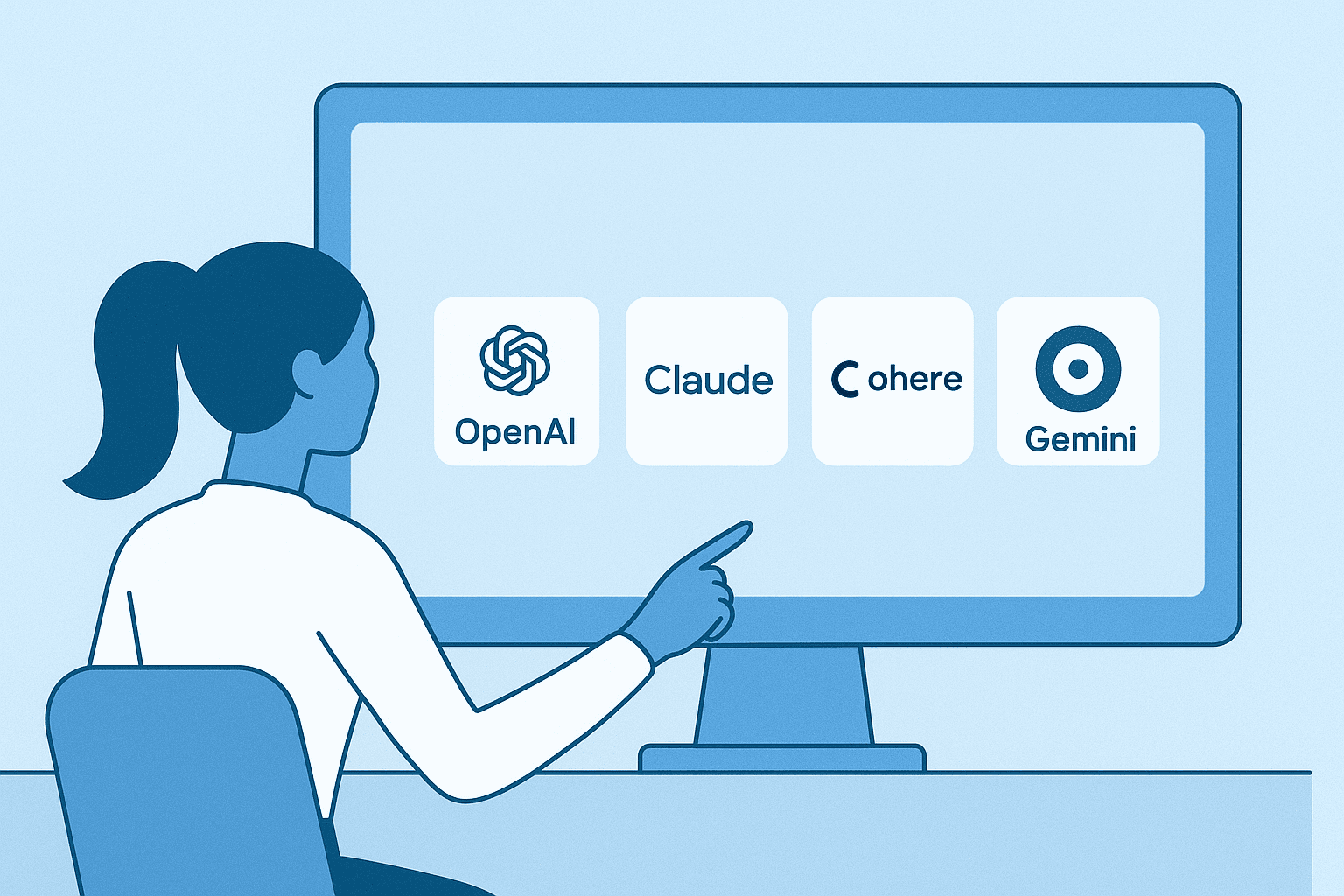
Which AI Provider is Right for You? Compare OpenAI, Claude, Cohere, and Gemini on Performance
As organizations increasingly embed AI into core products and workflows, choosing the right AI provider is no longer a technical afterthought — it’s a strategic decision.
OpenAI, Anthropic (Claude), Cohere, and Google Gemini each bring unique strengths to the table. AI2ME simplifies this complex landscape by giving teams clear visibility and data-driven recommendations.
Why Choosing the Right Provider Matters
Each provider has its own pricing structure, strengths, and limitations. Picking the wrong model can lead to overpaying, underperformance, or unnecessary complexity.
| Factor | OpenAI | Claude | Cohere | Gemini |
|---|---|---|---|---|
| Strengths | Best-in-class reasoning & coding | Long-context, structured reasoning | Cost-efficient summarization & classification | Multilingual & enterprise integration |
| Pricing | Premium | Premium | Affordable | Competitive |
| Latency | Moderate | Fast for reasoning | Fast | Low latency |
| Best Use Cases | Advanced chatbots, coding, analysis | Legal/technical domains, long-form QA | Summarization, embeddings, search | Multilingual apps, Google ecosystem |
How AI2ME Helps
AI2ME acts as a decision engine between your use cases and providers. It evaluates domain complexity, latency, cost per token, model performance, and compliance to recommend or route queries to the best-fit model.
Real-World Scenarios
- A SaaS platform uses Claude for legal document review and Cohere for summarization to save costs.
- A multilingual app routes queries to Gemini for global users.
- A developer platform uses OpenAI for code generation while routing FAQs to cheaper models.
Conclusion
The smartest organizations leverage multiple providers strategically, matching each task with the model that delivers the best performance-to-cost ratio. AI2ME gives you the tools to make that choice dynamically.
